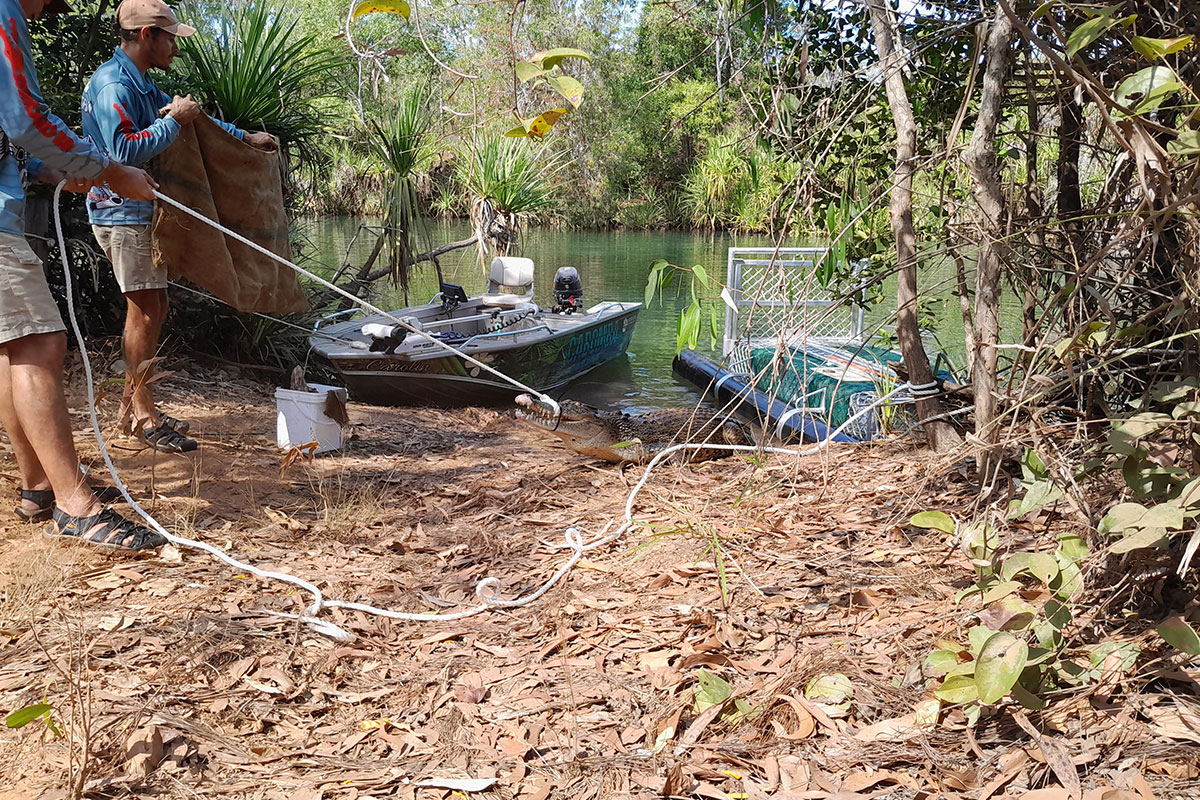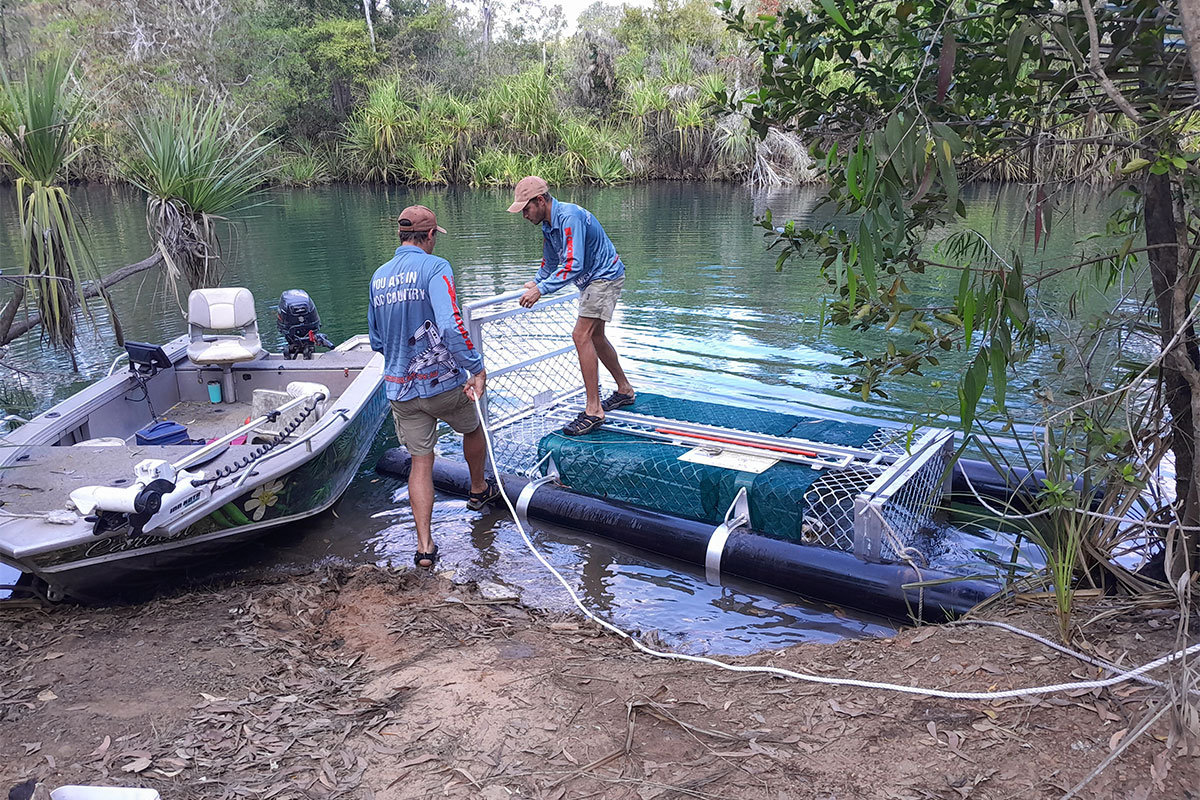Cabomba and crocodiles
Lok Landji Billabong, located on a section of the freshwater Darwin River, has been surveyed by the Weed Management Branch since 2004 for cabomba (Cabomba caroliniana).
The Crocodile Management Team helps to keep the team safe by providing crocodile management of the waterway. In July a 2.5m crocodile was removed, one of several found in the billabong since it was first declared a quarantine area.
Cabomba is considered one of the world’s worst aquatic weeds. It was first found in Darwin River in 2004 and has been subject to a – so far - successful eradication program. Weed management officers survey the billabong monthly via a small boat, called ‘Carolin’. Early treatment and dedicated thorough survey over an extended period of time has helped not just control cabomba in the billabong but prevent re-establishment. Cabomba poses a huge threat to all Top End waterways and this control program has been a massive investment over the last 20 years or so. The billabong was placed under quarantine in November 2004, which has helped prevent any spread into other waterways while the eradication program is still active.
After every wet season, the Weed Management Branch liaises with the Crocodile Management Team when restarting survey of the billabong and the team installs a crocodile trap at the boat ramp. They then work together to bait and check the trap throughout the season. Between 2010 and 2014, 4 saltwater crocodiles ranging between 3.8 to 4.4 metres were trapped and removed within the freshwater of Darwin River.
In July 2024, weed officers Shelley Inglis and Russel O’Regan were launching the boat when they noticed the crocodile trap door had been sprung. The Crocodile Management Team was called to remove the crocodile from the trap. It was a male and approximately 2.5 metres long. It serves as a valuable reminder to always ‘Be Crocwise’ working or being around any water body here in the Top End as one never knows what is lurking below the surface.


